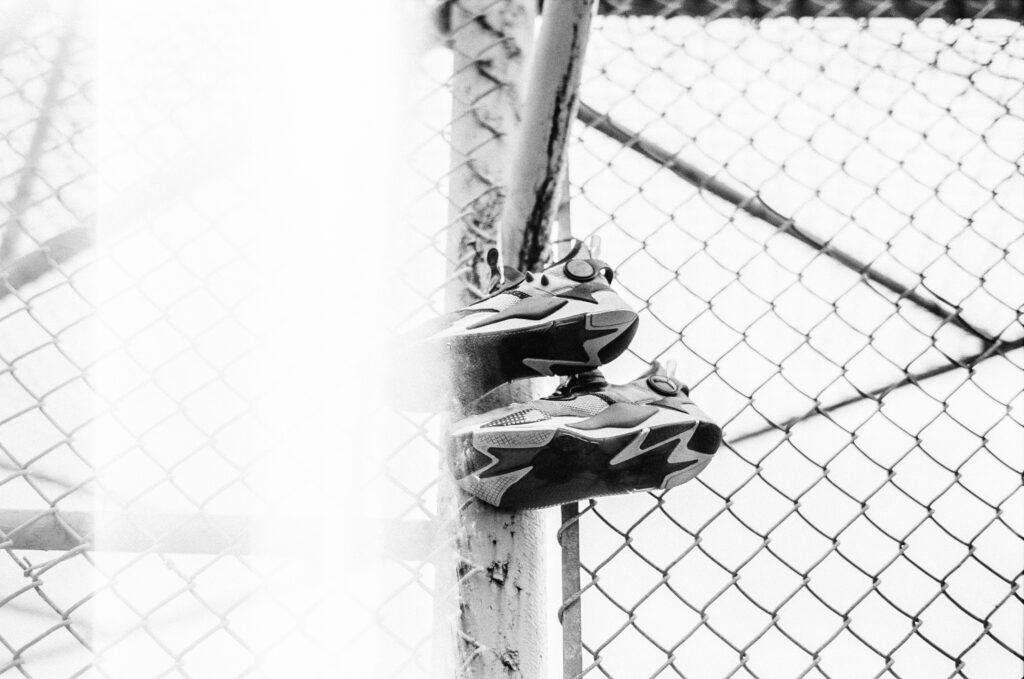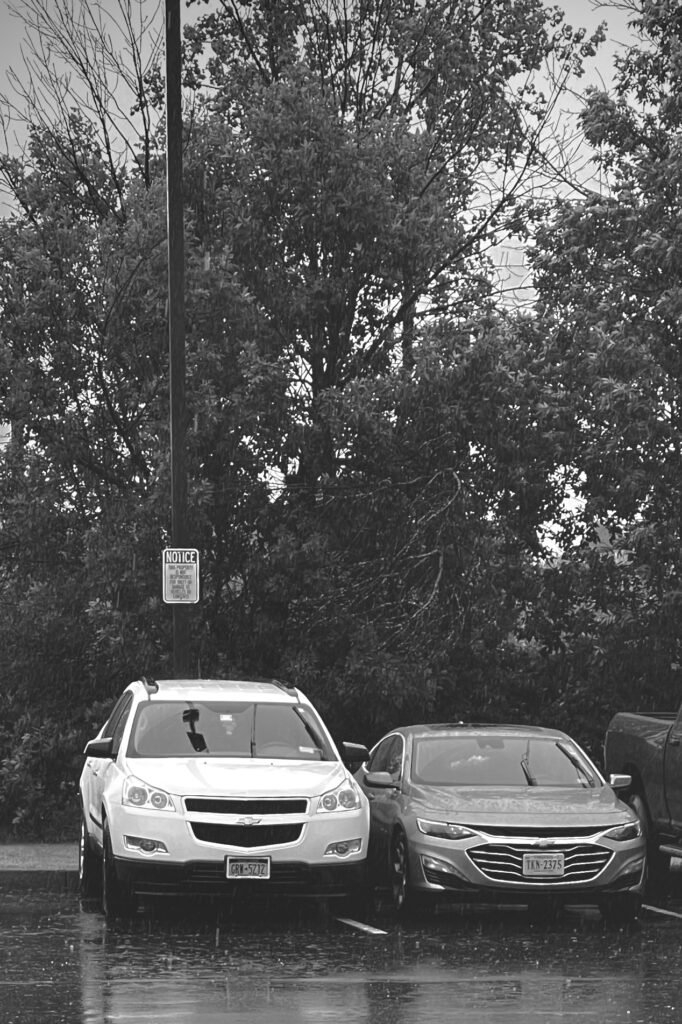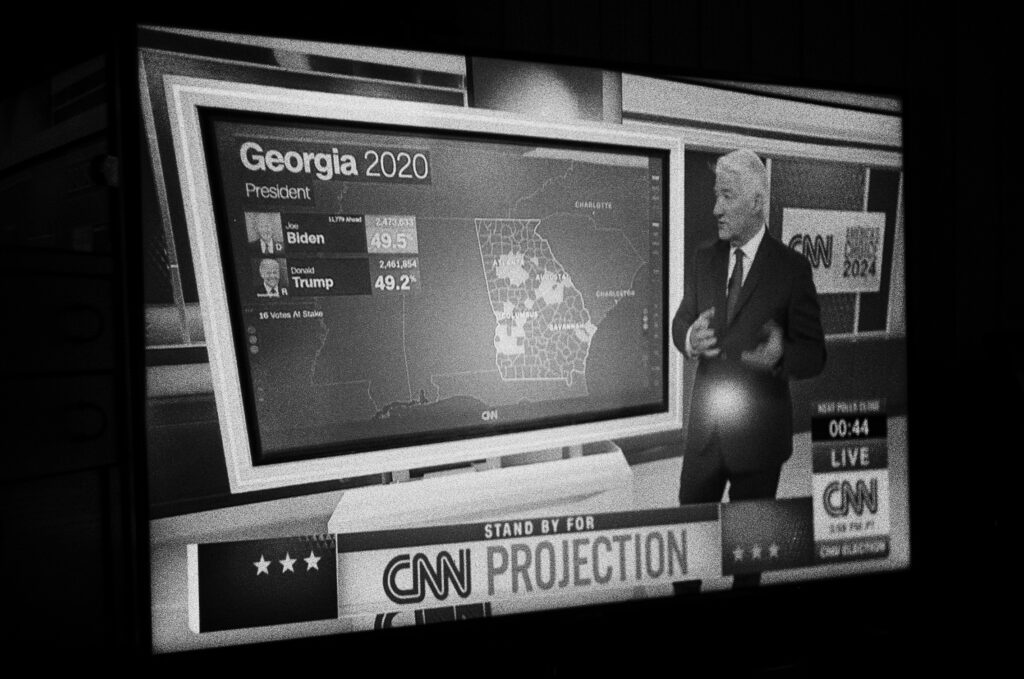2073 words
Most thought that it was supposed to be a year of promise. Fewer still looked on with trepidation, for they knew what was lying in wait. Most assumed that we were going to see a return to normalcy from the pandemic. Surely 2024 would be the year of the return of regular cycles of frivolous joy… wouldn’t it? The few looked on quietly, past the margins of wishful thinking and saw a version of what was to come.
The year of democracy saw many foreseen consequential and important elections abroad while unforeseen circumstances arose for governments such as Germany and Canada as they started falling apart. Prior and ongoing wars raged on with a never-ending crescendo of civilian misery, death and lost generations. Brutal regimes disintegrated as the said wars decimated their equally brutal allies. The Sahel would continue to go on its path of suffering without much of a bat of an eyelash from the rest of the world. The cost-of-living crisis was misattributed to individual national leaders by their uninformed electorates, resulting in a further loss of agency over their futures.
What a year it has been. Many year-in-review articles focus on a single capstone event, while others like to pick a representative word. Doing so would fail the collective experience and only convey the author’s own worldview. I, too, was tempted as the eleventh month of this year was drawing to a close. After witnessing several forms of aggression and near assault as Torontonians went at each others’ throats on one Saturday afternoon, the word that came to mind for the year was tantrum, and this ultimately led me to find the reason why.
Why was there a general rise in anger and a lack of patience exhibited for others? Are there parallels one can draw to other facets of life in 2024, as experienced in most liberal democracies?
The loss of agency and capability
It was the second consecutive example of road rage that me and my passenger had experienced within ten minutes. It was a gorgeous Saturday afternoon in the city of Toronto in late November. This was the kind of afternoon one dreams about as an idyllic setting for a movie. The air was warm yet crisp, and the orange and yellow foliage contrasted with the clear blue sky as if we were in an animated film.

Yet, the second SUV, within ten minutes, took issue with another series of drivers. Their horn was leaned on. Their high beams were doing their best to give onlookers seizures. The veins in their neck were visible as they stewed in their anger while dangerously tailgating every car in front of them. They then started videotaping the cars which they took issue with, and my passenger was about to yell out of our open window.
“Before you yell at them, what will it cost you to just let them sit in their misery alone?”
“Someone has to do something,” my friend said as the air in her chest already started deflating.
“And do you think drawing their ire will do us any good, or even better, do you think they are acting like someone who you can reach with your words?”
“I know. Can we please just close the windows and listen to some music?” This we did. I also took backroads to our destination, adding another forty minutes to our commute, but at least we were safe and in relative peace.
This was just one of several incidents I witnessed this year in Ontario and New York State. Road rage incidents and outbursts of people in public places like grocery stores used to be a lot less common than they are now in 2024. Road rage can be attributed to traffic being much worse, especially in Toronto, but a larger and more significant range of issues are at the heart of the matter.

People generally do not have as much control over their lives as they used to. Their buying power has eroded in the last four years, and there is no optimism given the global political and economic uncertainty.
Furthermore, unless you have either been living in a fallout shelter for the last decade or you have just awoken from a coma, you would have noticed that society is a lot more polarized now than in years past. 2024 was coined as the year of elections, as many consequential elections took place in several countries. In most of them, save for Romania and hold on to that thought for a moment, it turned out that 2024 was the year of the anti-incumbents. Frustration for the existing parties led to gains and wins for some very extreme parties. These were the same parties that incumbents for years had treated as aberrations, for most of them were established with extremist and fascist roots.
At the start of this article, I mentioned that many had foreseen that the anti-incumbent tendencies which had been rising over the pandemic would retreat. We expected to see a normalization back to our liberal democratic norms. Of course, this did not happen. Sadly, the consequence of this was that people stopped talking to each other. A lot of people devalued people with opposing views and viewed them as aberrant. Thus, they dehumanized them. Instead of listening to their concerns, the very worst examples of their cases were used to diminish their importance. Well, it turned out that this mentality of treating others with views that differ from ours as anomalous has made it to the civilian level and not just on political matters. There is a very good reason for this.
On literacy and consumption
You have undoubtedly heard or had some variation of a conversation that went over the cognitive decline of society at large. Whether it is our attention span, literacy, or problem-solving skills, I have walked into many conversations that skipped along this very topic. It turns out that we are in fact been getting dumber. According to a very comprehensive study performed by OECD, roughly just shy of a third of Americans are reading at the level of a ten-year-old. This means that they can only understand simple sentences, lists, while their problem-solving and retention skills are nearly non-existent when it comes to anything more complex than reordering a numbered list. Only two countries saw an increase in their literacy levels, Denmark and Finland. The OECD classifies this as a base Level 1 for comprehension, and when adults with voting power, drivers and gun licenses can only understand the world around them at this degree of complexity, issues arise.
This is where the blaming of social media actually has a place, for the use of simple language is needed to keep the audience engaged. If there are any complex concepts or more than a few basic sentences, the platforms run the risk of losing the user to another source of stimulus. This also goes a long way to explain the increase in usage of very short video content which is the more passive form of consumption possible. This also applies to all forms of media, such as television series, movies, and books. To keep the audience engaged, sacrifices must be made to the language and, ultimately, the message.
When the population has had their reading endurance and comprehension thoroughly knee-capped, the chances of any worthwhile discussions being had evaporate. Barely anyone is willing to come to the table with an open mind and can have their mind changed when new information is presented. The only exception I have encountered on this is within the workplace, where the threat of not doing so has dire consequences – losing one’s ability to attain resources.
Lastly, as Stephen Pinker hypothesized in Better Angels of Our Nature, he convinced many of his theory that the rise in literacy was the cause for more empathy and thus a decrease in violent crime. Thus, it stands to reason that significant outbursts resulting in assaults and damage will go on the rise. After all, it is much harder to start a fight with someone if you understand that they too, like you, are under great strain and in desperate need of a vacation, back rub, and a solid nap.
An inflamed existence
Whenever a toddler, a young child, or a drunk patron at the bar, for that matter, struggles to express what is truly bothering them, we are then treated to an outburst. By the way, explaining to a drunk person why they are angry and uncomfortable always results in an entertaining flare-up that usually quickly fizzles. Give it a try when you have some backup. This has been the direct consequence of lower literacy and comprehension levels. People in public now have fits of rage due to their base level of frustration with their realities being high at unhealthy levels.

Returning to the opening of this article, there has distinctly been a camp which has seen the current trends as anomalous, and these are the incumbents. Chances are that if you are an incumbent, you have been able to navigate the existing systems to a favourable result. Thus, allotting more opportunities along the way results in greater chances for higher education and higher literacy levels. While the anti-incumbents have their tantrums, the incumbents disengage and devalue the other person’s worth – one needs to look no further than the anti-incumbents avatars of Donald Trump and Elon Musk, who have been leading the way regarding having frequent public tantrums. As this behaviour becomes normalized, and any productive conversation between two people of opposing sides becomes nearly impossible, the parties discount the other as lesser than them. This basic dehumanization cements into place over time, which widens the chasm between all of us, and both parties at the extremes are to blame for this.

Distilling humanity offers a solution
Given that the social contracts we signed up for are no longer being honoured and that we as a society, are losing our capacity to discuss our differences, focusing on what we share could be a solution. Over the last year, this tactic has helped me resolve several conflicts in many different environments. Breaking down the discomfort at hand down to its root cause, such as someone simply being afraid of being noticed by their toxic manager, had helped me navigate their shortcomings in a manner that put a halt to any future complications while ensuring that they were comfortable enough to get their work accomplished.

There is no arguing that 2024 was a horrible year from almost every metric save for a handful of economic ones in certain countries. The one positive beacon was the Paris Olympics. I had the good fortune of watching the games alongside many people from different walks of life with different affiliations. Every single one of them was transfixed and rooting for the young athletes – save for the two incredibly racist people I watched a track event with. Most of us cheered, regardless of the nationality of the athletes, for we simply wanted the best for them.
Outside of the two severely racist individuals, every example had one thing in common – a shared hope for humanity and an innate desire for a better future. Granted, everyone’s definition of a brighter future can be vastly different, but if hope for all is a key element, there is common ground. Meeting others there and for addressing their immediate concerns and discomforts can lead to a gradual path of addressing root cause of their suffering and discomfort.
If you are determined to continue to try and have challenging conversations with others who do not have the capacity to engage in such discourse, try taking it slower and simply aim to understand how they have come to be who they are. Only then will you appropriately be able to gauge whether they are worth your time and effort. When it comes to resources of any kind, we are short on them now compared to half a decade ago. Ultimately, you should also be aware of the people around you code-switching to a set of behaviours they are primed towards and comfortable around you. Be it an old friend or a family member, some people are just comfortable being absolute shits to those closest to them. Be mindful of the time you spend with others who seem only interested in forcing their point of view on you. Chances are that if you are facing someone who is in the middle of a tantrum, they really just need a nap.
References:
“Do Adults Have the Skills They Need to Thrive in a Changing World? Survey of Adult Skills 2023,” by the OECD, 12/10/24
https://www.oecd.org/en/publications/2024/12/do-adults-have-the-skills-they-need-to-thrive-in-a-changing-world_4396f1f1.html
